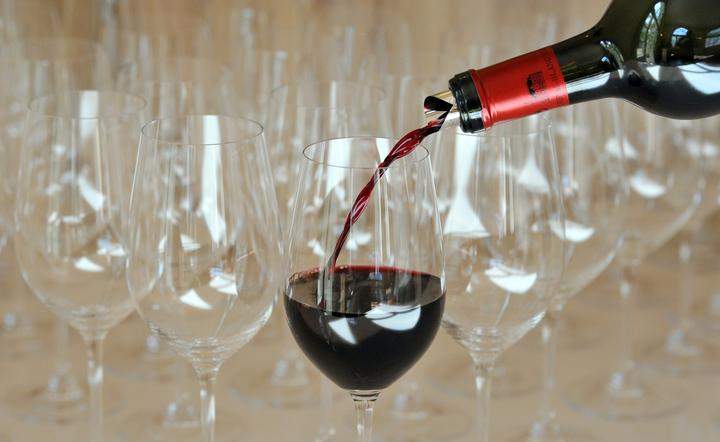TORONTO – They’re good for you, they’re bad for you. Dark chocolate, red wine and berries have been hailed as heart-healthy foods, but a new study suggests that the compounds at play don’t really help at all.

It’s a confusing time for wine and chocolate lovers. And at the centre of the controversy is resveratrol – found in dark chocolate, red wine, grapes and most berries, nuts and roots.
In recent years, it’s garnered a lot of attention. Now Johns Hopkins University scientists say the claims made over the past decade seem to be crumbling.
“The story of resveratrol turns out to be another case where you get a lot of hype about health benefits that doesn’t stand the test of time,” Dr. Richard Semba, lead researcher, said.
READ MORE: What you should be eating to lower your blood pressure
The study was published Monday afternoon. Then came the headlines that broke the hearts of winos and chocolate lovers around the world: “Antioxidant in red wine has no benefit at low doses,” the dramatic “Red wine and chocolate health lie” and “Look away now.”
Global News looked at the study’s findings and asked two Canadian experts for their take on the verdict. And don’t fret – there might be a silver lining.
The study’s findings:
The international study looked at a group of Italian people over the course of 15 years, who were living in the Chianti region.
The study’s participants were a random group in Tuscany where the community tends to stray away from taking supplements. But they had their fill of wine – drinking Chianti was the norm. They were also free to eat and drink as they pleased; there was no prescribed diet.
READ MORE: Why you should eat lentils, beans and peas
The latest research is based on the urine samples of nearly 800 seniors who were at least 65 years old. Turns out, the people with the highest concentration of resveratrol weren’t any less likely to have died of any cause than people who had no resveratrol in their urine samples.
Resveratrol levels had nothing to do with inflammation, cardiovascular disease or cancer rates.
Sound bite: “The thinking was that certain foods are good for you because they contain resveratrol. We didn’t find that at all,” Semba said.
But he’s not saying that these foods are bad for you either. “It’s just that the benefits, if they are there, must come from other polyphenols or substances found in those foodstuffs,” he said.
Canadian doctors weigh in:
The research is conflicting, according to Christine LeGrand, an expert from the Heart and Stroke Foundation of Canada.
There’s evidence from some studies that suggest that antioxidants in these foods reduce blood cholesterol, blood pressure or risk of diabetes. Other studies have shown no benefit. Then there’s research that suggests too much red wine increases your risk of heart disease or stroke.
READ MORE: What’s the best way to cook vegetables? Steaming, study says
But this latest research is pointing us in one direction: “This study confirms that there is no single food or food component that contributes to good health or reduced risk of disease,” LeGrand told Global News.
If it isn’t resveratrol, it’s something else that’s still shrouded in mystery, Dr. Rena Mendelson said. It’s not a single compound, it’s probably clusters of benefits. (And these foods likely contain benefits they don’t have in common.)
“We’re always looking for the magic bullet, we’re always looking for a specific ingredient when, in fact, everything we look at seems to suggest that it’s really all about a pattern of eating and a lifestyle,” Mendelson said.
Mendelson is a nutrition professor at Ryerson University with more than 40 years of experience in the field.
“They’re looking for a single answer to their questions. This isn’t the solution.”
READ MORE: Some of the worst foods for your heart’s health
LeGrand referred to the “French Paradox” phenomenon – people in France have relatively low rates of heart disease despite consuming diets higher in saturated fat.
Mendelson said the study participants in Tuscany also reported higher levels of physical activity – that should also play a role in protecting one’s health.
READ MORE: Measuring meals by exercise, not calories helps consumers eat healthy
So should you ditch the dark chocolate and red wine? Both experts said they hope consumers weren’t eating these foods for the health benefits. For starters, chocolate can be high in calories, sugar and fat.
Instead, stick to eating these foods in healthy portions.
The study participants could very likely eat according to the Mediterranean Diet, which favours plant-based foods, such as vegetables, fruits, grains, nuts and less red meat. That eating pattern has been linked to reducing heart disease and stroke.
carmen.chai@globalnews.ca
Follow @Carmen_Chai




Comments